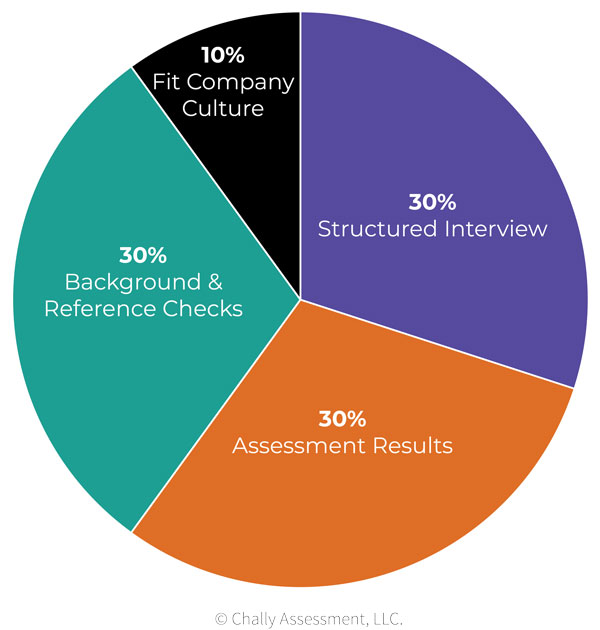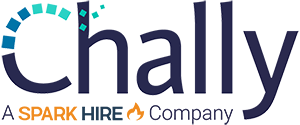What is Job Fit and Why Does It Matter?
Job fit is something every company should consider when making hiring decisions for both new hires and current employers. Finding the right fit for a job increases productivity, employee happiness, and decreases turnover.
How to determine if a candidate is a good fit for this job? When determining if a candidate is a good fit for a job, assessing their overall job fit matters. What exactly is job fit, and how is it measured?
Simply put, job fit is the overall assessment of the candidate and if they are a good match or good fit for a job position. Does the candidate share similar values with the company? Do their experiences and skills meet the requirements for the role? Let’s dive deeper into what both good and poor job fit is.
What Does Job Fit Mean?
Job fit assesses whether or not a candidate is a good match for a job based on criteria such as experience, education, values, and skills. The work environment, job responsibilities, candidate’s skills and personality are all taken into account. Do they meet the requirements of the job? Are they motivated? Will they mesh well with other employees? These are just a few aspects that can determine a good job fit.
Job fit isn’t only important when hiring. Job fit should also be considered when giving a promotion or transitioning a worker to a different department.
Employees need to feel comfortable yet challenged in their role and environment. If their skills aren’t being used, they’ll be bored and lose motivation, putting the company at risk of losing a strong employee. A good-fit performance at work will benefit the team and the company.
Why Does Job Fit Matter?
Why should job fit be important to employers? There are numerous reasons why job fit is so important when hiring and promoting employees. Job fit may seem like it is only an assessment of experience and skills, but it is much more than that. Assessing job fit has many benefits. It will measure how driven and productive a person may be in a job which increases employee retention and decreases turnover.
It’s not as simple as taking into account the job criteria and the employee’s experience. Values are assessed to ensure that the candidate is a cultural fit that can successfully collaborate and build relationships with other team members. A fit candidate will thrive in the role, seek new challenges, and want to grow within the company.
- Increase employee retention: Employees will feel motivated to stay long-term with the company. They will seek ways to grow in their current roles and apply for promotions to higher-level positions.
- Improve the quality of hires: If the job description doesn’t match the role, you’re destined to have a poor job fit. A clear and concise job description will attract talent with strong experience and skills that match the job criteria.
- Increased productivity: Employees that are motivated and work to their full potential increase productivity, collaboration, and the overall success and profitability of a company.
- Decrease turnover: Proper job fit decreases turnover as employees are assessed on specific criteria to ensure they’re the right fit. Great work fit will keep employees engaged with high levels of performance.

What Makes for a Good Job Fit?
It’s no secret that the hiring process can be difficult. Wading through an enormous talent pool and hundreds of resumes is no easy task. The right questions must be asked to truly measure a candidate’s fit and interest in the company. Chally’s Predictive Talent Assessment will weed out unfit prospects, creating less overhead for hiring teams. Many applicants may simply be trying to get hired or promoted. While they may be excited about the company, the role may not be a great fit.
How to evaluate candidates for good job fit? The first step in determining if a candidate is a good fit for a job is understanding what a good work fit is. When assessing job fit, several factors should be considered.
While the candidate needs to be great for the job at hand, they must also blend with the team and company as a whole. Tools and assessments such as Chally’s Predictive Talent Assessment will provide valuable insights on how to know if a candidate is the right fit. Here are a few considerations for identifying a good fit for a job.
- Job content: What do the day-to-day tasks look like? Will the employee use their skills and experience to grow in the role and career at the company? If an employee feels underutilized or doesn’t enjoy their work, they won’t be as motivated or productive.
- Experience: How does the candidate’s experience align with what is expected for the job? Do they have too much or too little? If they have too little, the role may be too challenging. On the flip side, if they have too much experience the candidate may have underutilized skills and feel unfulfilled.
- Education: Does the candidate meet the education requirements for the job? This includes any certifications that are necessary or preferred.
- Cultural fit: Does the company offer what the candidate is looking for? Do the company values match with the candidate’s? Does their work ethic align with company expectations and goals? Can the company support the candidate in achieving their career goals?

What is Person-Job Fit?
Person-job fit is an assessment that weighs values, personality, and other characteristics along with the tasks and requirements of the job. There is a lot to unpack with person-job fit that can be broken into many sub-categories. For example, it isn’t just how a person can fit into the role. How is the person-job fit vs person-organization fit? Can they work as a team? Are they motivated and collaborative?
A strong employee’s skills must be put to good use and even challenged. Feeling underutilized at work will only drive that person to look into opportunities with other companies. Let’s take a deeper look into a few of the job fit sub-categories.
- Person-Person Fit: Can the candidate build successful and professional working relationships? Person-person fit assesses the prospect while considering other employees like managers to determine if they will have a successful working relationship.
- Person-Company Fit: Will the candidate fit into the values and overall mission of the company? This question should be kept in mind when measuring person-company fit.
- Person-Team Fit: Can this individual work well with a team? Will their skill set strengthen the team and bring valuable insights? If a person is comfortable working with their peers, they will be more willing to contribute ideas and less likely to leave the team or company.
Signs of Poor Job Fit
Just as it’s important to recognize good job fit, employers need to know the signs of poor job fit. Poor job fit doesn’t mean that it’s a bad hire. They could have strong skills and experience, but not work well with co-workers or may not be comfortable handling a specific aspect of the job description. Even a well-qualified candidate or employee may not work well within the team or fit into the company culture.
Bored employees lose motivation. It’s important to know that signs of poor work ethic doesn’t mean the employee doesn’t care. It could be that they were a fit at one time, but now may be a better fit elsewhere in the company as they have outgrown their role. How can you measure if someone is not a good fit for a job? Here are signs the job is not a good fit:
- Tasks are taking too long to complete: If you notice tasks are taking longer than they should, the employee’s skills may not be as strong as they need to be successful in their role.
- You’re not seeing improvement: Has the employee been given coaching or other tools to improve a job task? If you’re not noticing improvement or the employee seems to be struggling, they are likely a poor job fit.
- The employee is bored: If an employee seems or has stated that they’re bored at work, it may be time to look into a new role to present them with new challenges. A bored employee will lose motivation and may even leave the company.
Reasons for Poor Job Fit
There are many reasons for poor job fit. It could be that the employee is not feeling fulfilled in their role. Maybe their skills aren’t being put to good use or they feel they can’t grow within their current job. Was the job description clear and accurate? Another reason for poor job fit could be that the job may require a specific skill or more experience than was initially known.
When is it Time to Discuss Poor Job Fit?
An employee may have a great job fit initially, but they may eventually outgrow their role. How can you identify employees that no longer are a good job fit and how can you help them succeed?
Managers should meet with their employees regularly to keep an open line of communication for career conversations. In these discussions, employees should feel comfortable discussing opportunities or areas in the company that interest them in addition to challenges they may face. It should become apparent to employers during these meetings if an employee is still a good fit for their current work role. When an employee has been identified as a poor job fit, some questions can help determine a better placement:
- Do you feel you’re working to your full potential in this role?: This direct question can easily open up a conversation with an employee. Employees want to excel in their roles. It’s a great lead into more probing questions about the employee’s goals and skills.
- How could your skills and experience be put to better use?: If the employee has expressed feeling underutilized, extending this question may provide greater insight into their skill level and how they may work to their full potential.
- Where do you see yourself within this company?: Career conversations are important to have regularly, especially when an employee is a poor job fit. Are they eyeing a promotion or even a move to a different department? Where does the employee see themselves thriving?
Find Qualified Candidates for Better Job Fit with Chally’s Predictive Talent Assessment
Job matching is important as it will retain strong employees while keeping them productive and motivated to do their best work.
With an understanding of what job fit means and how it can benefit your company, what tools are available to assist, especially with sifting through a large talent pool?
Resumes, interviews, and probing questions can only measure so much and are based on the interviewer’s or manager’s observations. Chally’s talent assessment will make gauging job fit easy for companies of any size. With decades of data behind them, Chally makes hiring decisions simple. See how their talent assessments will ensure you hire a fit candidate to better your team and company.
Explore more related articles:


